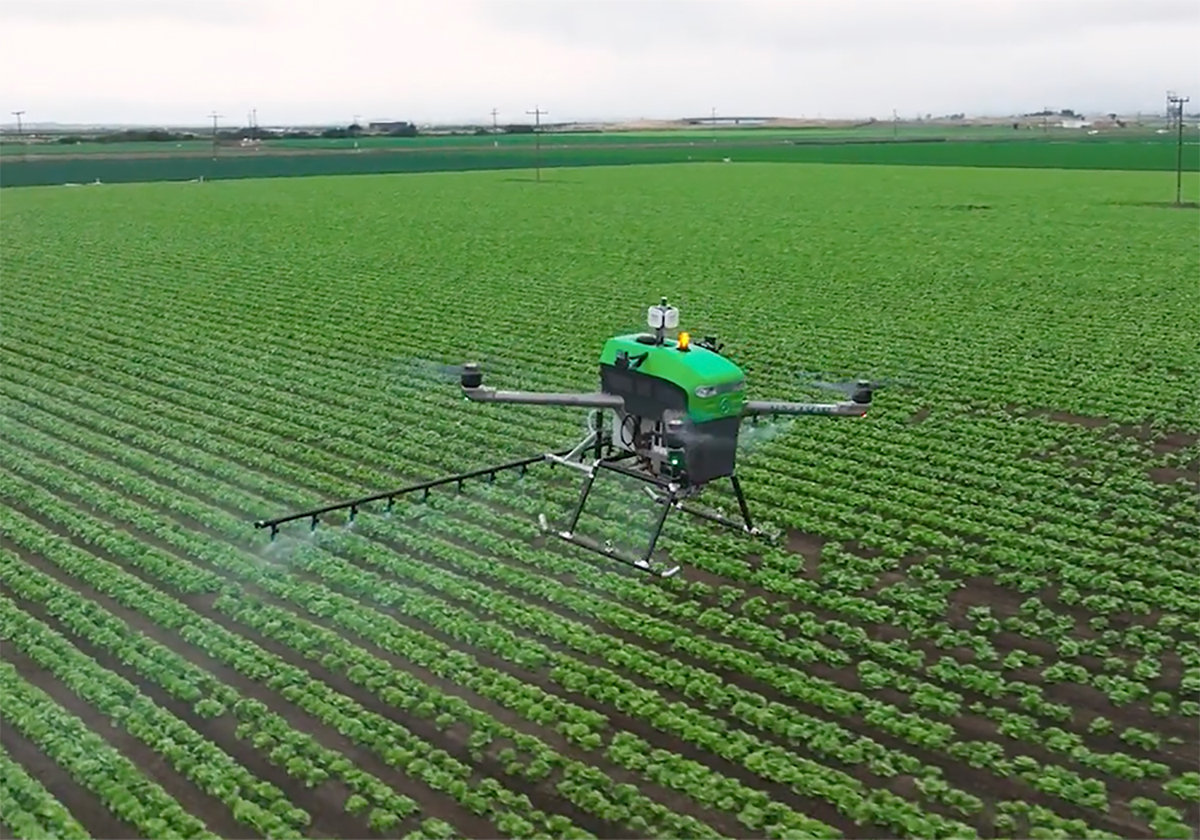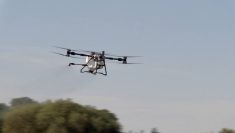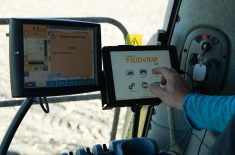Glacier FarmMedia — Tom Wolf, a research specialist at Agrimetrix, shared some of the spray drone research he and others in the subject area have done at the Nufarm Information Theatre during the Western Canadian Crop Production Show Jan. 15.
While the use of spray drones for chemical application is still illegal in Canada, research on how to use them efficiently and effectively is ongoing.
Much of Wolf’s research focuses on how to properly operate a drone for best spray application. He stressed the importance of flight height and speed because they effect the downwash and droplet distribution.
Read Also

Wheat breeding system no longer works, Canadian Wheat Research Coalition report says
A Canadian Wheat Research Coalition report, published Feb. 26, says the status quo is not an option for Canada’s wheat breeding system. It must be transformed, by farmers.
Ideal height of flight is about three metres from the ground, while ideal speed will vary depending on the amount of product deposit a producer wants, just like with a typical boom sprayer.
Wolf and his team have tested anywhere from four to 18 m.p.h. during their research.
However, because drones are slower than other aircraft and create their lift by pushing air downwards, there is a more significant downwash with drones than with piloted aircraft.
“On a piloted aircraft, we don’t have a lot of downwash — it generates a lot of downwash, but it’s diluted by forward travel speed,” he said.
A strong downwash is needed because it assists in the product effectively making it’s way through the canopy of plants to the ground. However, this downwash is also highly susceptible to drift, making it hard to create tight borders.
“In the middle of the drone pass, there’ll be heavy deposition, and on the edges it’ll be lighter and lighter and lighter,” Wolf told the crowd.
“You have to decide, where is it too light? Where do I have to start overlapping?”
According to Wolf, swath patterns and determining those overlaps are the biggest challenge with drones.
“We have to measure them, and they’re not as uniform as we’d like,” he said.
“So, there may be design features, faster flying speeds, getting under the downwash (to consider). We have a lot of work to do here to make sure that we actually don’t create problems.”
















